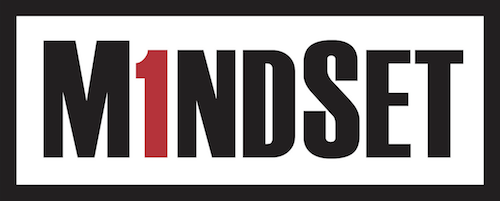A new football coach has been hired at the University of Nebraska – big news in these parts. (For those readers who reside outside Nebraska or don’t follow the Huskers, Coach Bo Pelini was recently fired after seven seasons at the helm of the Nebraska football program. The termination was not entirely due to wins and losses, but rather in good part due to Coach Pelini’s behavior and the culture his leadership had created within the football program.) Before we close the door on the Bo Pelini era, let’s take a look at a few things we can learn about leaders and leadership from examining what occurred under his tenure.
MindSet has long stressed that selecting the right individuals for positions of leadership is critical for organizational success. Yet many companies often fail to get these selections right. All too often, supervision is awarded to individuals based on technical expertise or seniority – two considerations that have almost zero correlation with the ability to successfully lead humans and build cultural health. (One of MindSet’s more practical consulting services is helping clients to more accurately spot leadership potential.)
When Coach Pelini was given the head coaching position at Nebraska, few questioned his impressive experience as a football coach at the assistant level, and he was widely regarded within the profession to have considerable expertise on the defensive side of the ball. Yet he had never been a head coach, so there was no track record as to his ability to build and protect a healthy culture where success can thrive – a challenge that requires a distinct skill set.
Coach Pelini does exhibit admirable traits such as competitiveness, high behavioral expectations for players, hard work, and loyalty to his coaches and players. Yet from a MindSet perspective, there exist three glairing holes in his profile as a leader.
1) Exceptional leaders are not just open to new learning, they are aggressive in pursuit of it! Change is something they embrace – constantly looking at past performance to examine what needs to change and being willing to consider advice and input from a variety of sources. Coach Pelini showed few indications of being an eager learner, and seemed outright resistive – even to the point of defiance – to input from others. A healthy ego and a commitment to your own beliefs are good things – but not when they metastasize into stubbornness.
2) Coach Pelini often talked about “pointing the thumb,” meaning whoever he was talking about needed to take personal responsibility for failure and not point fingers at others. (For those of you who want to go a bit deeper, take a look at the psychological concepts of locus of control and attribution theory.) Yet beyond his surface-level acceptance of accountability, Coach Pelini was himself often quick to attribute causality to external factors beyond his control, blaming a hostile media, unsupportive administration, meddlesome former players, or ignorant and unrealistic fans for his perceived failures.
Such leaders often feel put-upon, and adopt a bunker mentality that can result in an environment tainted with self-pity. Unfortunately, such leaders are often able to draw in those immediately around them. Such followers will accede to the leader’s pronouncements that they are indeed operating within an unjust and hostile environment – creating a cloistered and eventually toxic culture that mistakenly advances the belief that all they have is one another to rely upon. Intense intragroup loyalty results – but it is a seething form of loyalty that devolves into an ever more inwardly-focused, isolated culture that rejects outside input (or even support!), and impedes growth and lasting success.
This is a pattern often seen in work environments. A given supervisor will make himself or herself out to be a hero by blatantly defending the workgroup from wicked outside forces such as upper management. Such a leader will toss their superiors under the bus for the short-term benefit of ingratiating themselves with their direct reports. Silos then begin to appear within the organization and communication between divisions deteriorates into a battle of us versus them.
3) Coach Pelini’s largest red flag as a leader would seem to be his inability to control anger – and sometimes rage – a characteristic that is seldom helpful in a leader.
Using MindSet’s Conquering Thoughts analysis, we can speculate what might be the genesis of this challenge for Coach Pelini. MindSet uses the term cognitive blunders to denote deeply seated belief systems that if not mitigated, will cause a leader to have intense emotional and behavioral reactions that will a) inhibit their ability to maintain rational thought and sound decision making, and b) have a negative impact on the work environment and staff members with whom they work.
Coach Pelini appears to be saddled with the cognitive blunder of I Crave Justice. When events or situations occur which seemed unjust to him, the emotional reaction is often fury – whether that be an inappropriate question from the media, a bad call from an official, a player out of position, an action by University administration, or fans that didn’t stay until the last play of the game. Coach Pelini appears to see himself as a tough guy – but given his external attribution for bad outcomes, he saw a work setting in Nebraska that was unjustly hostile to his success – an external world that was preventing him from getting the success and respect he deserved. The subsequent fury likely degraded his ability to make rational decisions, and his behavior surely must have had a chilling impact on those around him.
But let’s be more positive and optimistic for this New Year.
The new head football coach at Nebraska is Mike Riley. Coming from Oregon State, where football has little to no tradition, few would argue that moving to what is considered a “blue-blood football school” constitutes a substantial change for Coach Riley to a bigger stage offering far greater prestige and resources. Given that, it is illuminating to notice how Coach Riley responded to a media question at his introductory press conference – and at the time I heard it, I will admit I cringed! My initial reaction was that Coach Riley missed an opportunity to ingratiate himself with Nebraska fans (known affectionately as Husker Nation). But the more I have considered it – and contrasted Coach Riley’s response to the attitude and behavior of Coach Pelini – I have come to see this following Q and A as an indication of a HUGE, and beneficial, change in leadership. Here is the question and his response:
Q from Press: What do you think of the difference between Nebraska and Oregon State in terms of resources? Coach Riley’s Response: “You know, I think that resource-wise I tend to be one of those guys that looks at the bright side. So what you have you enhance, and what you don’t have you try to make better. So it’s not really comparing or contrasting because that’s not important to me.”
With this response, Coach Riley passed up the chance to put into perspective some of his achievements at Oregon State despite a lack of resources – to have talked about the uneven playing field he may have faced. But he did not – nor did he say anything that could be construed as anything but respectful and appreciative for his years at Oregon State: “I have to say here that I am very thankful for all the folks that I got to work with at Oregon State…. I got a lot more from Oregon State than they got from me.”
These responses, as well as everything I have seen said about Coach Riley from those who have worked with and covered him in the media, suggest that this is a man who attributes his success and failure to his own efforts, seldom focuses on disadvantages or small affronts, actively looks for growth opportunities, and accepts bumps in the road with calm and humility.
We don’t yet know if fresh leadership in Lincoln will result in better football outcomes, but as MindSet constantly reminds, we do know that culture is created and maintained by leadership. It is going to be interesting to watch Coach Riley, and the group of coaches he gathers around him, as they set out to unwind some of what has been done by the previous leader.

Founder of MindSet, LLC.

